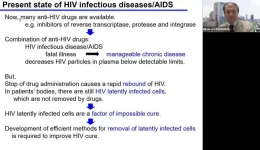(Press-News.org) Approximately one in ten NHS healthcare workers experienced suicidal thoughts during the first year of the COVID-19 pandemic, finds a new University of Bristol-led study published in PLOS ONE today [21 June].
Concerns were raised about the risk of suicide among healthcare workers during the pandemic after a number of high-profile cases were reported in the media. Researchers from the University of Bristol, King’s College London and UCL (University College London), sought to investigate the prevalence and incidence of suicidal thoughts and behaviour among NHS healthcare workers in England and their relationship with occupational risk factors.
The team analysed responses from the NHS CHECK longitudinal online surveys completed by healthcare workers (clinical and non-clinical), students, and volunteers in 18 NHS Trusts across England during the COVID-19 pandemic. Responses from 12,514 participants were completed at baseline, and 7,160 participants at 6 months follow up, between April 2020 and August 2021.
Results highlighted that exposure to events that went against moral values, a lack of confidence about raising safety concerns, and these concerns being addressed, feeling unsupported by managers, and having to provide a reduced standard of care, significantly contributed to staff distress during the pandemic. At the second six-month time point, among clinicians, a lack of confidence about safety concerns being addressed, independently predicted suicidal thoughts.
Paul Moran, Professor of Psychiatry at the University of Bristol’s Centre for Academic Mental Health and one of the study’s lead authors, said: “Our findings show that several modifiable workplace risk factors, such as exposure to events that may have gone against a health worker’s moral code, providing a reduced standard of care, or feeling unsupported by managers all increased the likelihood of suicidal thoughts being reported by healthcare workers.”
Dr Prianka Padmanathan, Honorary Research Fellow at the University of Bristol’s Centre for Academic Mental Health and one of the study’s lead authors, added: “Our analyses show that among healthcare workers who had not experienced suicidal thoughts when first completing the survey, one-in-ten reported experiencing them six months later. Additionally, almost one in 25 staff reported having attempted suicide for the first time.
“These findings highlight the scale of mental health issues across the NHS at a time of unprecedented concern. Improvements in mental health support and addressing structural issues around workforce and resources might significantly reduce suicidal thoughts and behaviour among health care workers.”
Professor Sir Simon Wessely, NHS CHECK Chief Investigator and Professor of Psychiatry at King’s College London, added: “Let’s not forget that having a job is usually better for our mental health than not having a job. But sometimes the nature of the job can increase stress and strain on the individual. In these cases this work reminds us that the best source of support to maintain your health and wellbeing are not mental health professionals or the people in charge of your organisation. It is the person next above you - your immediate supervisor, manager or report, and the people around you - your friends, family and colleagues.”
The study was funded by the Medical Research Council (MRC), Wellcome, Rosetrees Trust, Economic and Social Research Council [ESRC] and National Institute for Health and Care Research (NIHR), the research partner of the NHS, public health and social care, NIHR Maudsley Biomedical Research Centre, King's College London and NIHR Health Protection Research Unit in Emergency Preparedness and Response at King's College London.
END
One in ten NHS healthcare workers experienced suicidal thoughts during pandemic, study finds
2023-06-21
ELSE PRESS RELEASES FROM THIS DATE:
Repurposed drug shows promise for treating cardiac arrhythmias
2023-06-21
Ruxolitinib, a drug that is already approved by the U.S. Food and Drug Administration (FDA) for treating certain cancers and skin conditions, is effective at inhibiting CaMKII, a protein kinase linked to cardiac arrhythmias.
In a new study published June 21, 2023, in Science Translational Medicine, researchers from Johns Hopkins University and the University of Chicago invented a new reporting technique to monitor activity of CaMKII while screening the effects of nearly 5,000 FDA approved drugs on human cells that expressed the ...
Urgent action needed to further improve child survival in Ethiopia: Study
2023-06-21
New global research on child mortality rates in Ethiopia shows while there has been a significant decline in these rates in past three decades, too many children under the age of five are still dying.
The analysis found the mortality rate in the under-five demographic decreased by almost 4.5 per cent every year between 1990 and 2019.
However, despite the progress, it’s still one of the highest rates in the world with an estimated 190,000 under 5 deaths in 2019 at the rate of 52 deaths per 1000 livebirths. The country’s neonatal mortality rate is 26.6 deaths per 1000 livebirths.
Lead author Dr Gizachew Tessema from the Curtin School of Population ...
Quantum interference can protect and enhance photoexcitation
2023-06-21
When a photon interacts with a material, an interaction occurs that causes its atoms to change their quantum state (a description of the physical properties of nature at the atomic level). The resulting state is called, aptly, photoexcitation. These photoexcitations are conventionally assumed to kill one another when they come near each other, radically limiting their density and mobility. This in turn limits how efficient tools that rely on photoexcitation such as solar cells and light-emitting devices can be.
But in a study published June 19 in the journal Nature Chemistry, scientists at Northwestern University and Purdue University challenge this assumption ...
Reducing bias and stigma associated with medication-assisted treatment improves care
2023-06-21
Medication-assisted treatment (MAT), such as naltrexone, is a well-documented successful treatment for opioid use disorder (OUD). However, there are multiple barriers for clinicians to use MAT, including clinician lack of confidence in using the treatment, their own misconceptions about the patient population, and, until recently, federally required training. Additionally, there is a stigma associated with MAT and the patients who would most benefit from it. Improving access to MAT training and integrating it into clinician programs and curriculums may remove identified barriers, decrease stigma, and enable newly trained clinicians to treat patients.
To address these barriers, ...
UNM researchers find medical cannabis patients who feel 'high' report greater symptom relief but increased negative side effects
2023-06-21
In a new study titled, “Understanding Feeling ‘High’ and Its Role in Medical Cannabis Patient Outcomes,” published in the journal, Frontiers in Pharmacology, researchers at The University of New Mexico, in collaboration with Releaf App™ found that patients who reported feeling “High” experienced 7.7% greater symptom relief and an increase in reporting of positive side effects such as “Relaxed” and “Peaceful.” However, these benefits must be weighed against a more than 20% increase in negative side effect reporting.
Senior author and Associate Professor of Psychology, ...
Screening newborns for "bubble-baby" disease saves lives
2023-06-21
Screening newborns for severe combined immunodeficiency disease (SCID) significantly increases the survival of children after bone marrow transplantation, a new North American study finds.
Published today in The Lancet with an accompanying editorial, the retrospective study was co-led by Elie Haddad, an Université de Montréal medical professor and clinician scientist, pediatrician and immunologist at the UdeM-affiliated CHU Sainte-Justine mother-and-child hospital.
The research shows that the gradual adoption of newborn screening for SCID since 2008 in North America has boosted the survival rate from 73 per cent between 1982 and 2009 to ...
Rain gardens could save salmon from toxic tire chemicals
2023-06-21
Specially designed gardens could reduce the amount of a toxic chemical associated with tires entering our waterways by more than 90 per cent, new research shows.
Tired toxins
The chemical 6PPD-quinone can form when car tires interact with the atmosphere. It enters rivers and streams when rain runs off roads into waterways. It is toxic to coho salmon, rainbow trout and some other fish.
“Rain gardens”, or bioretention cells, are gardens engineered to reduce flooding and soak up contaminants when road runoff is directed ...
New MU study examines variability of water, carbon in Missouri agriculture ecosystems and future impact on crops
2023-06-21
One of the main reasons plants use water is to allow them to absorb carbon dioxide from the atmosphere. This means that, in plants, the water and carbon cycles are tightly linked. In a new study, researchers from the University of Missouri and the United States Department of Agriculture (USDA) used this foundational principle to identify sustainable farming practices aimed at helping staple crops like corn and soybeans thrive during extreme weather conditions that have become more common in the Midwest.
This study examined how farming practices affect crop resilience to climate change by examining water and carbon ...
Welcoming two new journals to the PLOS portfolio: PLOS Mental Health and PLOS Complex Systems
2023-06-21
SAN FRANCISCO — PLOS today is announcing that it will soon launch two new journals: PLOS Mental Health and PLOS Complex Systems. PLOS sees these new journals as an opportunity to give evolving research communities opportunities to forge a new path for research in the field. Whether that means welcoming new ways of sharing research transparently or cementing new policies that enable research to be evaluated and rewarded more fairly, or simply finding a broader audience where research can make a greater real-world impact.
PLOS Mental Health provides a dedicated venue for all mental health research, connecting global experts from a broad range of disciplines and addressing challenges ...
A new, promising weapon in the fight against HIV
2023-06-21
A research team led by Tokyo Medical and Dental University (TMDU) has identified a molecular compound that activates latent HIV-1 in cells, showing promise for HIV treatments
Tokyo, Japan – A multi-institutional research group led by researchers from Tokyo Medical and Dental University (TMDU) has made a significant and promising step forward in our ability to treat human immunodeficiency virus type 1 (HIV-1), the virus underlying acquired immunodeficiency syndrome (AIDS).
To appreciate their accomplishment, we must first know a little about why HIV-1 is difficult to eliminate. ...

